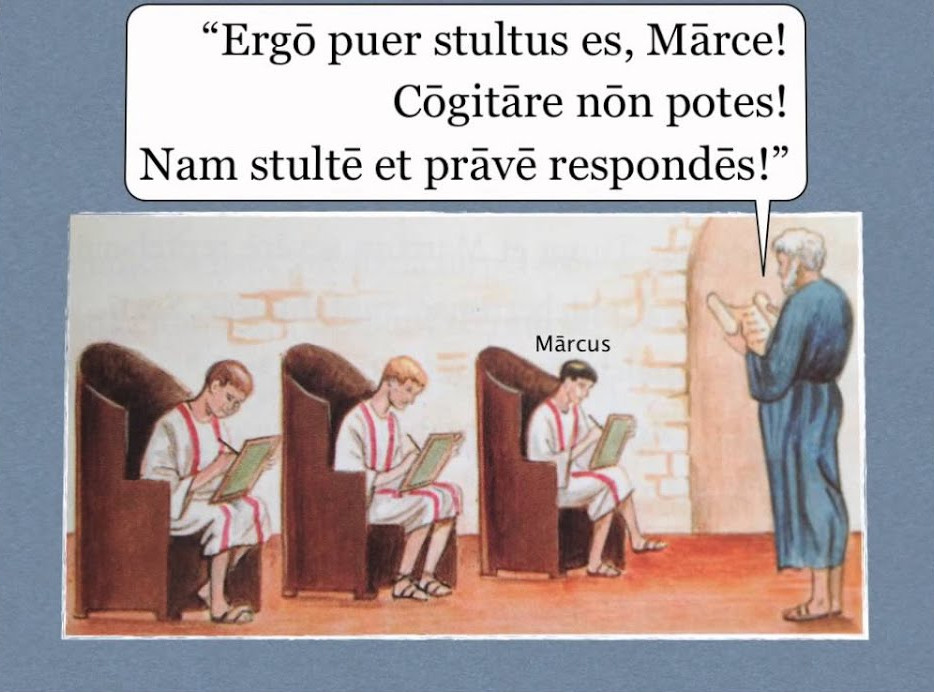Stop what you're doing and go learn Latin! I myself, have never really been interested in learning much about ancient languages, but Latin was one that came as a surprise to me. Prior to studying Latin, I had to learn French because I live in Canada and it's the second official language, English being the first. But besides that, I never really had the need to learn any additional languages. I always knew about Latin and that many of the Romance languages that people use today have evolved from Latin: French, Spanish, Italian, Portuguese, and Romanian. A common misconception is that Latin is a dead language, but these five Romance languages that I have merely mentioned, all evolved from Latin. Here are some more reasons on why you should use it:
- If you ever wanted to learn other Romance languages, knowing Latin would make that process much easier and facile.
- Learning Latin is great if you're a linguist or plan on going into it.
- Latin is one of the easiest ancient languages to learn if you're an English speaker.
- Half of our English vocabulary is made up of Latin words and roots; it also helps you learn English grammar more in depth.
- Once you learn Latin, you will possess massive grammatical knowledge of how the majority of languages work.
- You can read the classics, and famous works from the Medieval and Renaissance period.
- A whole unknown realm of knowledge is opened to you once you can read old literature in Latin because a lot of thoughtful work has already been written in it. A lot of this is hidden from modern people because they're just too dumb to read Latin.
- Majority of history that we know of today, is only a small fragment in time of what we have recorded in history books. But a lot of modern ideas that we think of today, in fact already exists but can only be found in Latin literature and read in the original text because there are no translations for them.
Apart from taking French classes, I never in my life enrolled in a Latin class. Majority of the time, you aren't going to learn any Latin from regular classes and you are far better off getting a few books. Several hundred years ago, people never viewed Latin classes as Latin classes, instead they referred to it as Grammar classes. This goes to show the abstraction of the language and how logical it is. And in the process of learning Latin, you really begin to understand how the grammatical aspect of other languages work too. Unlike in English, where you're forced to learn the grammatical rules that are just useless and do not matter, Latin is much different. In Latin, you begin to understand why things are there and what they're used for, they aren't so arbitrary like they are in English grammar. If you're just a normie who has never learned a language, it isn't just about learning words. There are the grammar rules, inflections, and how to say things. Such as how the dative case is used or the ablative cases, as well as verbal inflections. In general if you want to learn Latin or any classical language for that matter, make sure that you get a book that was written at least 50 years ago. Here are a couple of books and an article that I used throughout my journey of learning Latin, and ones that I strongly recommend:

- Collar and Daniell's First Year Latin
- Hans Ørberg's Lingua Latina Per Se Illustrata
- Latin by the Dowling Method
There is nothing particularly special about these books that I have used, I found them to be quite useful which is why I am recommending them. I used Collar and Daniell's First Year Latin to learn the main syntactical grammar of Latin, they have great exercises which is basically the only way you can truly learn such a language. It has everything you need, with small passages written in basic Latin as well. Hans Ørberg's Lingua Latina Per Se Illustrata is great for your continuation of learning more vocabulary, which I found to be the most annoying part of learning Latin. Learning the vocabulary of Latin in fact, is one of the least important things, that just comes over time. But even when you do have to learn it, it isn't that hard because a lot of the words can one way or another be related back to English. This book is fully written in Latin and exposes you to over 1,800 words that are reinforced by phrased repetition. It also has pictures and the Latin text gets gradually harder and more complex. The story is fairly interesting about the everyday life of a Roman family in the 2nd century A.D., and it starts off in a way that anyone can read it with very superficial knowledge of Latin. A good thing about Latin is that it has been around for thousands of years, and so the system for learning it has came a long way, making it pretty efficient.
Studying Latin has been one of the best investments of my life, and I have no regrets studying it. Another good thing is that there are no native speakers, so I never had to worry about someone laughing at me. I plan on learning Ancient Greek next, however, I still have to buy some more books on it. So don't think too much about it and just learn Latin, who knows where it will take you. You might become a linguist one day or go on to study one of the Romance languages such as Spanish or French.